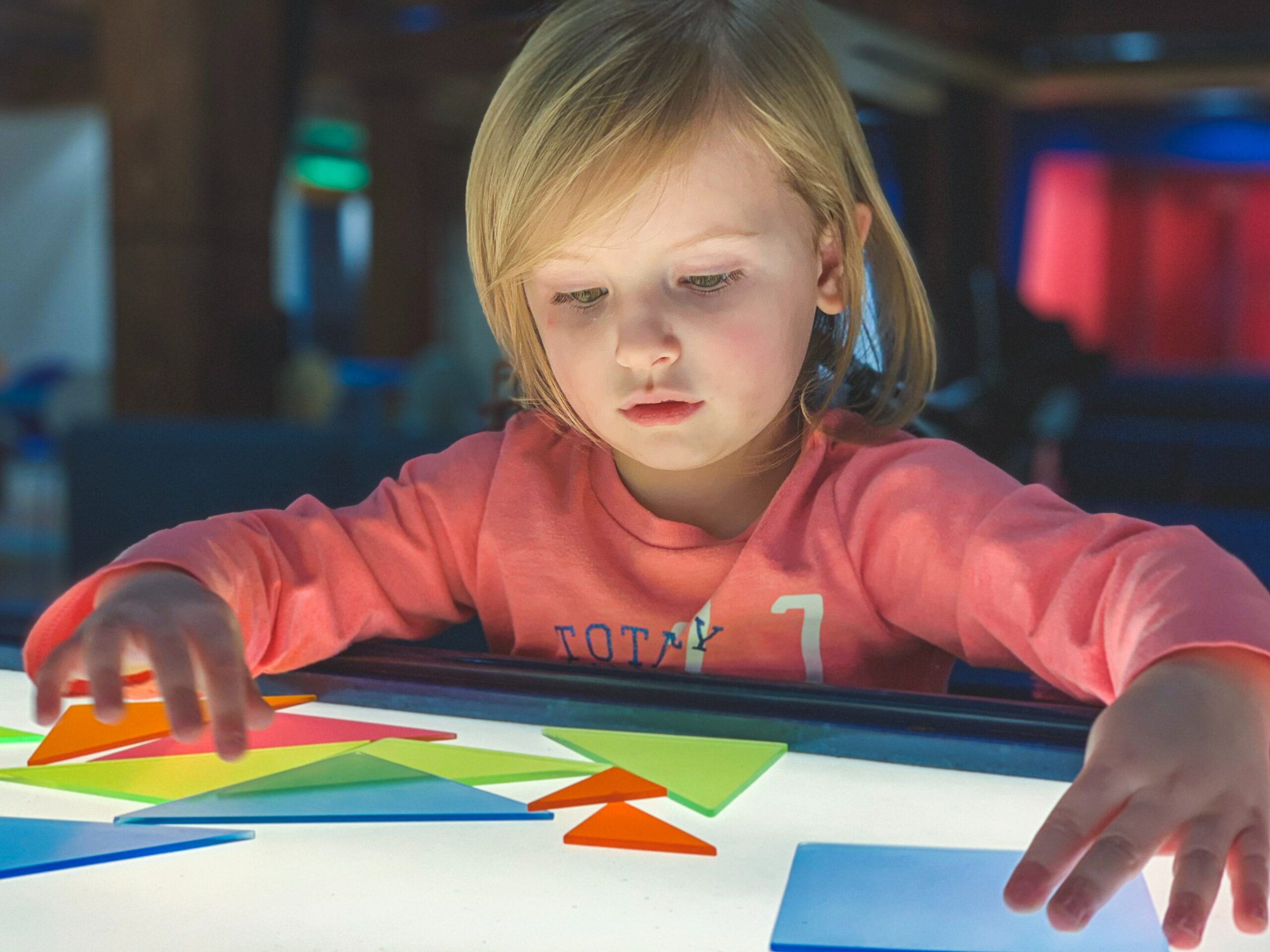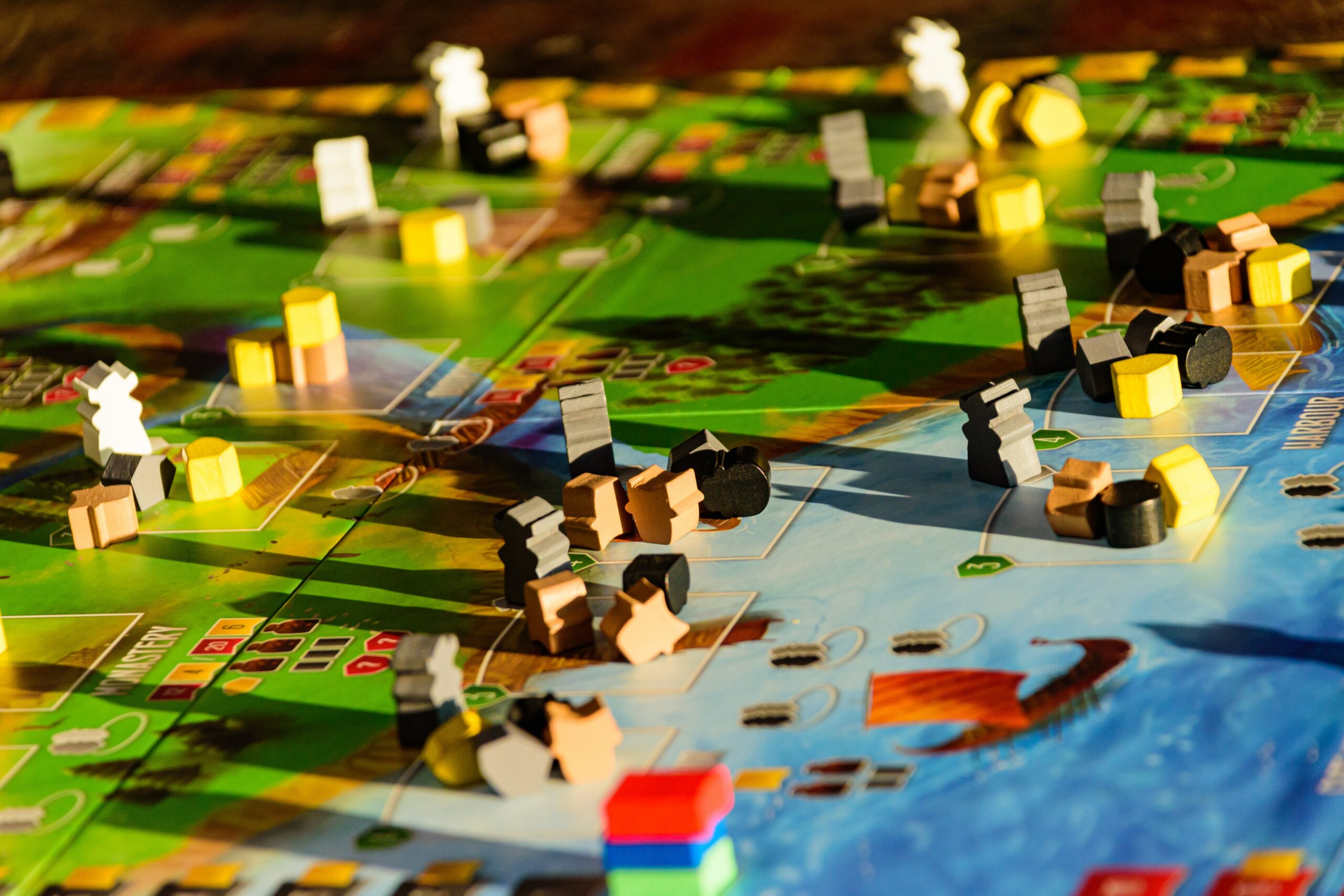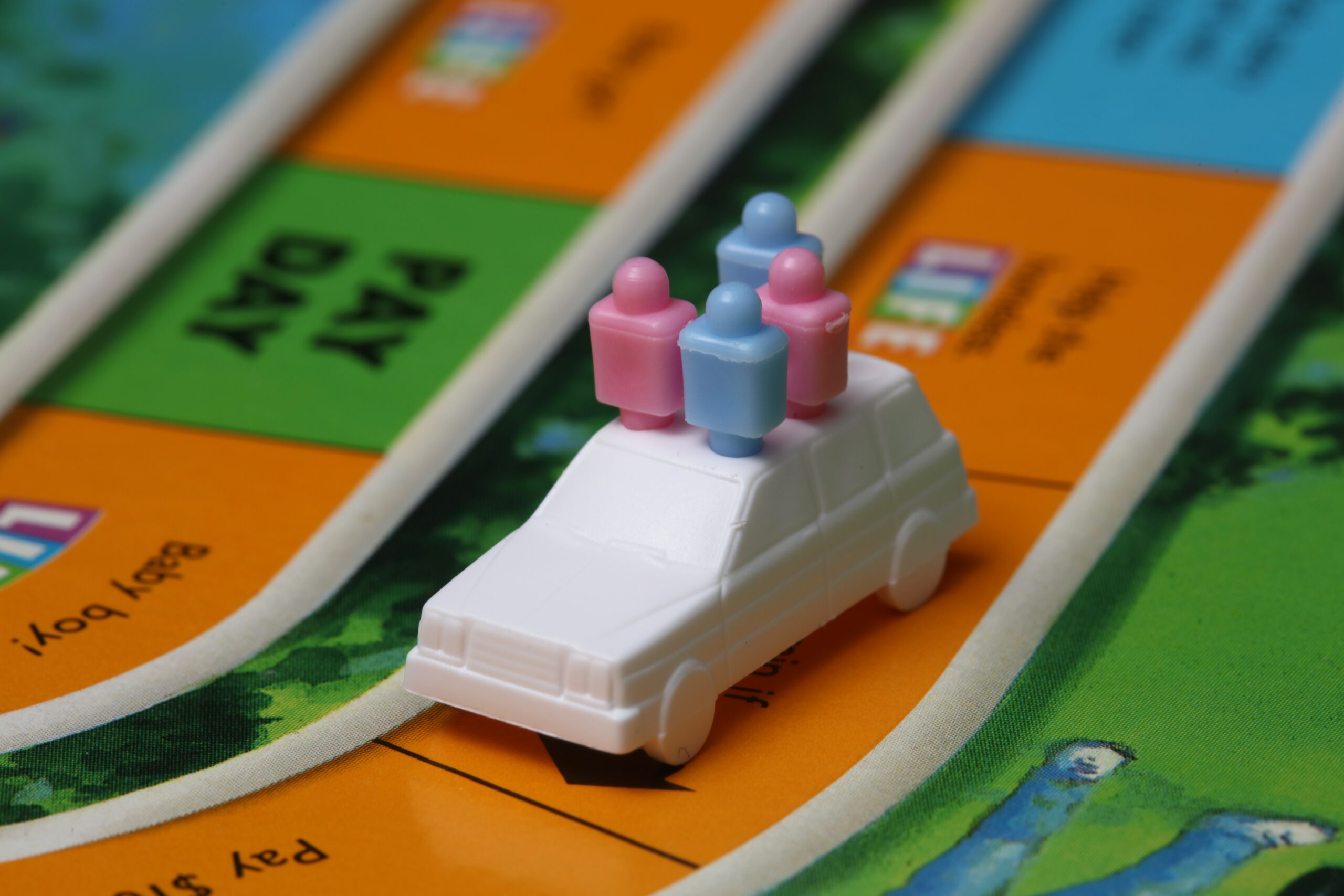Welcome to the exciting world of board games for 3-year-olds! Board games offer a fantastic opportunity for young children to have fun while learning valuable skills. Engaging and interactive, these games provide a platform for cognitive development, social interaction, fine motor skills, language acquisition, and much more.
In this article, we will explore the benefits of board games for 3-year-olds and highlight a range of fun and educational choices to enhance their growth and development. Whether you’re a parent, caregiver, or educator, get ready to discover a variety of board games that will captivate the imagination of your little ones while fostering essential skills for their future.
What are the benefits of board games for 3-year-olds?
Board games offer a multitude of benefits for 3-year-olds. They promote cognitive development by stimulating problem-solving, critical thinking, and memory skills. Through gameplay, children learn to follow rules, take turns, and practice patience.
Additionally, board games encourage social interaction, cooperation, and turn-taking, helping young ones develop important social skills. These games also provide opportunities for language development, as children engage in conversations, express their thoughts, and expand their vocabulary. Moreover, board games offer a break from screen time, allowing children to engage in hands-on, tactile experiences that stimulate their senses and enhance their fine motor skills.
How do board games promote cognitive development in young children?
Board games play a significant role in the cognitive development of 3-year-olds. These games require children to think strategically, make decisions, and solve problems, fostering critical thinking skills.
Matching games, shape-sorting games, and memory games help improve cognitive abilities such as pattern recognition, memory retention, and visual processing. As children engage in gameplay, they practice counting, recognize numbers and colors, and develop early math skills. Board games also enhance their attention span and concentration as they focus on the game objectives and follow rules.
Which board games help develop fine motor skills in 3-year-olds?
Fine motor skills are crucial for young children’s overall development, and board games can play a significant role in improving these skills. Games that involve picking up and manipulating small pieces, such as building blocks or puzzles, help refine hand-eye coordination, dexterity, and finger strength.
Activities like placing tokens, spinning spinners, or moving game pieces across the board require precise finger movements, encouraging fine motor control. Games that involve threading beads or stacking objects can also enhance hand-eye coordination and manual dexterity. By engaging in these activities, 3-year-olds can enhance their fine motor skills in a fun and interactive way.
What are some board games that encourage social interaction and cooperation?
Social interaction and cooperation are essential skills for 3-year-olds to develop, and board games provide a wonderful platform for practicing these skills. Games like “Snail’s Pace Race” or “Cooperative Memory Game” foster collaboration as children work together toward a common goal. These games encourage communication, sharing, and turn-taking, promoting positive social interactions.
Cooperative games create an inclusive and supportive environment, where children learn to take turns, support one another, and celebrate collective achievements. By engaging in cooperative board games, 3-year-olds can cultivate important social skills that will benefit them throughout their lives.
| Board Game | Age Range | Main Features |
|---|---|---|
| Time-Telling Train | 3-6 years | Teaches basic concepts of time, hours, and minutes through interactive gameplay. |
| Sequencing Adventure | 4-8 years | Encourages children to arrange cards in sequential order and understand the concept of sequencing. |
| Time Travel Tales | 5-10 years | Takes children on a time-traveling journey, teaching historical events and chronological order. |
| Sequence Explorer | 6-12 years | Combines sequencing skills with geographic knowledge, guiding players through continents and landmarks. |
| Adventure in Time | 8-14 years | Offers a complex gameplay experience involving time manipulation, puzzles, and advanced sequencing challenges. |
How can board games enhance language and communication skills in toddlers?
Board games offer an excellent opportunity for toddlers to enhance their language and communication skills. Games that involve storytelling, such as “Tell-A-Story” or “Story Cubes,” encourage children to express their thoughts and ideas verbally. They spark imagination and creativity, prompting children to create narratives and share them with others.
Board games that require following instructions, listening to others, and engaging in conversations enhance language comprehension and communication abilities. As children interact with game components, express their preferences, and ask questions, they develop vocabulary, sentence structure, and communication confidence.
Are there board games specifically designed for sensory development?

Yes, there are board games specifically designed to promote sensory development in young children. These games often incorporate tactile elements, such as textured game pieces or sensory boards, to engage children’s senses and stimulate their sensory perception.
Examples include games like “Touch and Feel Farm” or “Sensory Sorting Game.” By engaging in these sensory-rich activities, children can enhance their tactile, visual, and auditory senses, develop fine motor skills, and improve their overall sensory awareness.
What are the best board games to introduce numbers and counting to 3-year-olds?
When it comes to introducing numbers and counting to 3-year-olds, several board games can make the learning process fun and engaging. Games like “Number Train Adventure” or “Counting Critters” utilize colorful game pieces, numeral recognition, and counting exercises to familiarize children with numbers and basic counting skills.
Through interactive gameplay, children can practice counting objects, recognizing numerals, and understanding the concept of quantity. These games not only make learning numbers enjoyable but also lay a solid foundation for future math skills.
Can board games help improve attention span and focus in young children?
Absolutely! Board games provide an excellent opportunity for young children to practice and improve their attention span and focus. Games that require concentration and sustained attention, such as “Memory Match” or “Find the Hidden Objects,” encourage children to stay focused on the game and pay attention to details. By engaging in these activities, children develop their ability to concentrate, enhance their visual perception, and strengthen their attention span. Regular participation in board games can help young children build important cognitive skills and improve their overall ability to focus.
Are there board games that teach basic colors and shapes?
Yes, there are board games specifically designed to teach young children about basic colors and shapes. Games like “Color Matching Challenge” or “Shape Sorters” introduce children to different colors and shapes through hands-on activities and gameplay.
These games often involve matching colored objects or sorting shapes into corresponding slots. By engaging in these activities, children develop color recognition skills, learn to identify and differentiate shapes and enhance their hand-eye coordination. These games provide a fun and interactive way for children to learn about colors and shapes while fostering cognitive development.
How can board games stimulate creativity and imagination in 3-year-olds?
Board games can be a great tool for stimulating creativity and imagination in 3-year-olds. Games that encourage open-ended play and creative thinking, such as “Build Your Adventure” or “Imagination Island,” provide children with opportunities to use their imagination and create unique stories or scenarios.
These games often involve storytelling, role-playing, or building activities, allowing children to express their creativity and explore their imagination. By engaging in these imaginative experiences, children develop their narrative skills, expand their vocabulary, and enhance their cognitive abilities while having a blast.
Are there board games that incorporate storytelling and narrative skills?
Yes, there are board games specifically designed to incorporate storytelling and narrative skills. Games like “Storytelling Adventure” or “Once Upon a Time” prompt children to create and share their own stories based on game prompts or cues. These games encourage children to use their imagination, build narratives, and express their ideas verbally.
By engaging in these storytelling activities, children enhance their language development, foster creativity, and improve their ability to structure stories. These narrative-focused board games provide a fun and interactive way for children to develop their storytelling skills and unleash their imagination.
What are some board games that encourage problem-solving and critical thinking?

Several board games are designed to encourage problem-solving and critical thinking skills in young children. Games like “Mystery Mansion” or “Logic Puzzles” present children with challenges, puzzles, or riddles that require them to think critically and find solutions. By engaging in these problem-solving activities, children develop their analytical thinking, logical reasoning, and decision-making abilities.
These games foster a growth mindset, encourage perseverance, and teach children the value of finding solutions through trial and error. Through gameplay, children can sharpen their problem-solving skills and apply critical thinking strategies in a fun and interactive way.
How do board games promote turn-taking and patience in young children?
Board games provide an ideal platform for promoting turn-taking and patience in young children. Games that involve taking turns, such as “Turn-Taking Train” or “Sharing Snacks,” teach children the importance of waiting for their turn and respecting others’ opportunities. By engaging in these turn-taking activities, children develop essential social skills, including patience, cooperation, and empathy.
Board games also provide valuable opportunities for children to learn about winning and losing gracefully, managing emotions, and practicing good sportsmanship. These experiences contribute to the development of positive social behaviors and enhance children’s overall emotional intelligence.
Are there board games that introduce basic concepts of time and sequencing?
Yes, there are board games that introduce basic concepts of time and sequencing to young children. Games like “Time-Telling Train” or “Sequencing Adventure” teach children about the order of events, time progression, and basic sequencing skills. These games often involve arranging cards or objects in a specific order or following a sequence of actions.
By engaging in these activities, children develop their understanding of temporal concepts, improve their sequencing abilities, and enhance their cognitive skills related to organizing information. These games provide a playful way for children to grasp fundamental concepts of time and sequencing.
Can board games help with emotional development and self-expression?

Certainly! Board games can be instrumental in supporting emotional development and self-expression in young children. Games that involve emotions, empathy, or role-playing, such as “Emotion Exploration” or “Feelings Charades,” provide children with opportunities to identify and express their emotions, understand others’ feelings, and practice empathy.
These games help children develop emotional intelligence, enhance their communication skills, and foster a sense of self-awareness. By engaging in these emotional experiences, children learn to recognize and regulate their emotions, improve their social interactions, and build healthy emotional connections with others. Board games can be a valuable tool for supporting children’s emotional development and promoting positive self-expression.
In My Opinion
Board games for 3-year-olds offer a world of learning, engagement, and fun. Through these games, young children can develop cognitive skills, improve fine motor abilities, enhance social interactions, and strengthen their language and communication capabilities. By engaging in age-appropriate board games, 3-year-olds learn valuable lessons in problem-solving, cooperation, turn-taking, and critical thinking.
These games provide a break from screen time and encourage hands-on experiences that stimulate their senses and fine motor skills. So, gather your little ones and embark on an exciting journey of discovery and growth with board games designed specifically for 3-year-olds.